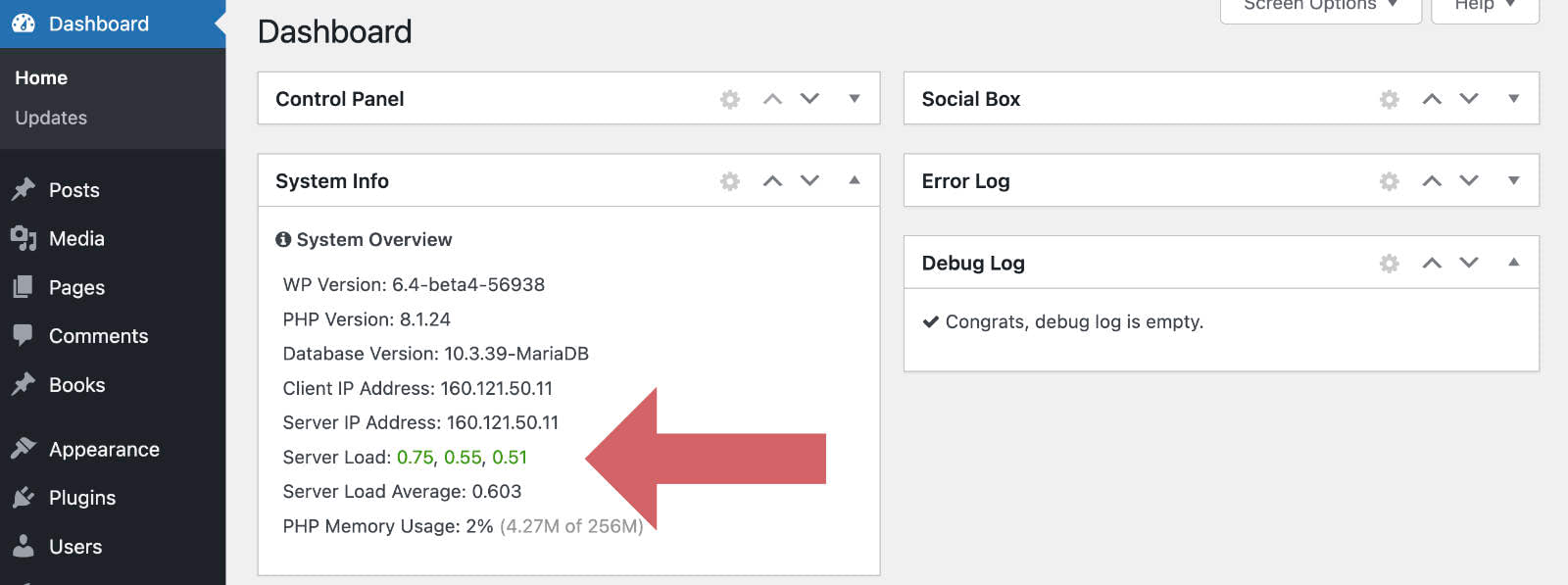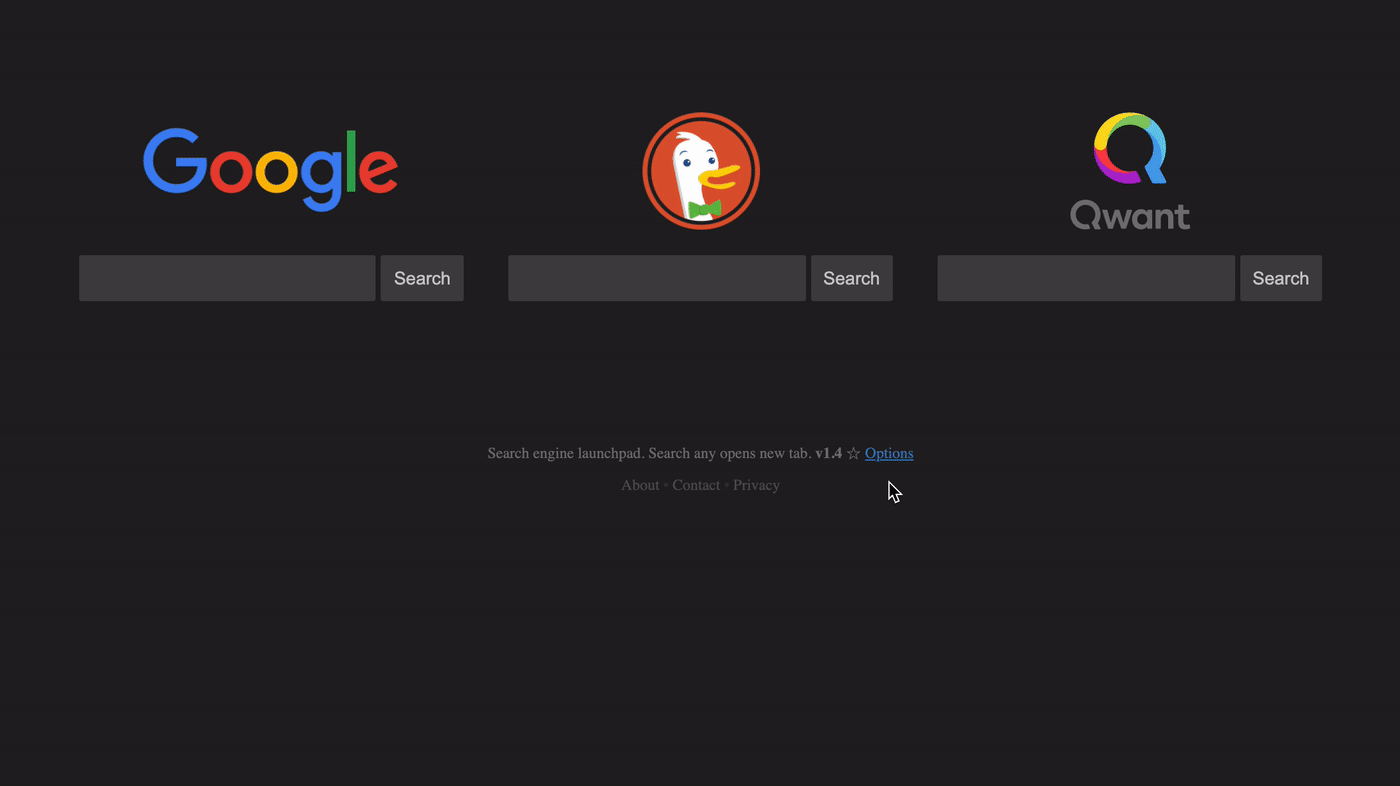
Just a quick note to self (and anyone looking for the same information). A common question I get for my free WordPress plugin, Dashboard Widgets Suite (DWS), is “what do the CPU Usage” numbers mean? Users get curious because the DWS plugin displays something like this on the WordPress Dashboard: Displaying CPU Usage and other stats on the WP Dashboard (click image for full-size view) Notice in the screenshot, where it shows the three numbers for “CPU Usage”: 0.75, 0.55, […] Continue reading »

I’m excited to launch my latest web-dev book, Wizard’s SQL Recipes for WordPress. I got the idea for this book way back when I was first learning how to build dynamic websites. I thought it would be useful to bring together all of the best SQL snippets in sort of a “spellbook” or “cookbook”. After all, SQL queries can seem like magic to the uninitiated. By entering concise, well-crafted commands, SQL enables anyone to interact with any relational database. It’s […] Continue reading »

Finally! Writing this post is the final step in the 2021 redesign of my WordPress plugins site, Plugin Planet. The site launched seven years ago in 2014. I think I spent a couple of months or so building the original site to the best of my ability. That first design stood the test of time, and honestly it would have been fine for another couple of years or more. But after seven years of changes, modifications, swapping out plugins, adding […] Continue reading »

Google has another new thing they are doing, called FLOC (Federated Learning of Cohorts). It’s used to — surprise — track user activity across websites. Opting out ideally is handled by the user, who can customize their browser settings to disable FLOC while surfing around the Web. Beyond configuring your browser to opt-out of FLOC, you can disable it on any website with a single line of code. Continue reading »

Recently launched a simple one-page website called Wutsearch. Wutsearch is a search-engine launchpad that I use for my homepage. Usually I work with several browsers open, each set to open multiple tabs on startup. For a long time, all those tabs were set to the Google homepage. Then DuckDuckGo. Now, it’s Wutsearch 🚀 Continue reading »
![[ Perishable Press Books (screenshot) ]](https://perishablepress.com/wp/wp-content/images/2020/books-homepage.jpg)
After six months of on-again, off-again hard work (and plenty of unexpected challenges), I am excited to launch the new Perishable Press Bookstore. The old bookstore was located on a separate domain, but I wanted it to be better integrated with the main site here at Perishable Press. So now there is the site blog at perishablepress.com and the store at books.perishablepress.com. Continue reading »
![[ Previous site design: the X theme ]](https://perishablepress.com/wp/wp-content/images/2018/x-theme-lite.jpg)
Welcome to the 2020 (25th!) redesign for Perishable Press. Like many of the previous designs, the new design is super minimal and organic. The #1 goal this time around was to find an optimal balance between performance and aesthetics. Or put another way.. Continue reading »
![[ Drawing: Abstract Entity Pursuing Clean Search Results ]](https://perishablepress.com/wp/wp-content/images/2018/cleaning-search-results.jpg)
This post is about how I cleaned up an incorrect URL in the Google search results. My business site is basically a one-page portfolio site, located at the URL https://monzillamedia.com/. But in the Google search results, the URL was showing as https://monzilla.biz/, which did not exist. So all potential customers were getting an error page. Fortunately I was able to re-acquire the monzilla.biz domain and redirect all traffic to monzillamedia.com. Continue reading »
![[ Perishable Theme (from 2008) ]](https://perishablepress.com/wp/wp-content/images/2018/perishable-theme.png)
After 9 grueling weeks, I am happy to say that the 2018 Perishable Press redesign is complete. There are still a few small details that I am contemplating, but overall the work is finished and the site is back to full production capacity. From the old Wire theme rolled out in 2013 (five years ago!), to the minimalist, lightweight X Theme, Perishable Press has metamorphosed into a lean, mean, content sharing machine. This is the 24th time Perishable Press has […] Continue reading »
![[ How to use the base tag ]](https://perishablepress.com/wp/wp-content/images/2017/html-base-tag.gif)
When every byte counts, you can use the HTML <base /> tag to specify a default href and target attribute for all relative URLs on the page. Like a virtual shortcut. For smaller sites with a flat directory structure, this isn’t going to help much; but for sites with deeply nested directories, the <base /> tag can potentially shave a lot of extra weight from your web pages, and also help keep URLs cleaner and shorter. So if you’re micro-optimizing […] Continue reading »
![[ Bulletproof Sitemap Redirection ]](https://perishablepress.com/wp/wp-content/images/2017/bulletproof-sitemap.jpg)
Sitemaps have been shown to help search engines and other visitors understand and navigate your website. This tutorial gives you a simple yet powerful .htaccess technique for ensuring that search engines and other visitors can easily find your sitemap files. So even if they are looking for your sitemap in the wrong location, they’ll always be redirected to the actual, existing sitemap for your site. This strategy helps to improve consistency, minimize 404 errors, and save server resources. So it’s […] Continue reading »
Perishable Press is now over 12 years old. It is a lot of work keeping everything updated, maintained, and well-secured. Fortunately there are a gazillion free online tools for checking your site’s health. Everyone has their favorites. In this quick article, I share mine. Continue reading »
![[ Google Webmaster Tools: WP-Mix.com ]](https://perishablepress.com/wp/wp-content/images/2016/google-performace_wpmix.gif)
Following up on my recent performance report with essentially some conclusive results. Turns out that the reported issue is related more directly to the version of PHP than to the version of WordPress. So in other words, WordPress runs a bit faster on newer versions of PHP. As explained previously, after I upgraded my sites to WordPress 4.4, Googlebot reported slightly longer load times for my pages. The slower loading average was seen across numerous sites, and it looked like […] Continue reading »
While solving the recent search engine spoofing mystery, I came across two excellent examples of spoofed search engine bots. This article uses the examples to explain how to identify any questionable bots hitting your site. Continue reading »
Lately I’ve been getting a significant number of really weird 404 requests for one of my sites. At first I ignored them. Then upon closer inspection, I realized that the requests were reporting user agents like Googlebot, Bingbot, and other top search engines. So there was cause for concern. You don’t want legitimate search engines tripping over endless 404 requests that are completely unrelated to your site content. That gets into “negative SEO” territory, and should be investigated and resolved […] Continue reading »
Here is a working list of all user agents for the major, top search engines. I use this information frequently for my plugins such as Blackhole for Bad Bots and BBQ Pro, so I figured it would be useful to post the information online for the benefit of others. Having the user agents for these popular bots all in one place helps to streamline my development process. Each search engine includes references and a regex pattern to match all known […] Continue reading »





![[ Perishable Press Books (screenshot) ]](https://perishablepress.com/wp/wp-content/images/2020/books-homepage.jpg)
![[ Previous site design: the X theme ]](https://perishablepress.com/wp/wp-content/images/2018/x-theme-lite.jpg)
![[ Drawing: Abstract Entity Pursuing Clean Search Results ]](https://perishablepress.com/wp/wp-content/images/2018/cleaning-search-results.jpg)
![[ Perishable Theme (from 2008) ]](https://perishablepress.com/wp/wp-content/images/2018/perishable-theme.png)
![[ How to use the base tag ]](https://perishablepress.com/wp/wp-content/images/2017/html-base-tag.gif)
![[ Bulletproof Sitemap Redirection ]](https://perishablepress.com/wp/wp-content/images/2017/bulletproof-sitemap.jpg)
![[ Google Webmaster Tools: WP-Mix.com ]](https://perishablepress.com/wp/wp-content/images/2016/google-performace_wpmix.gif)
